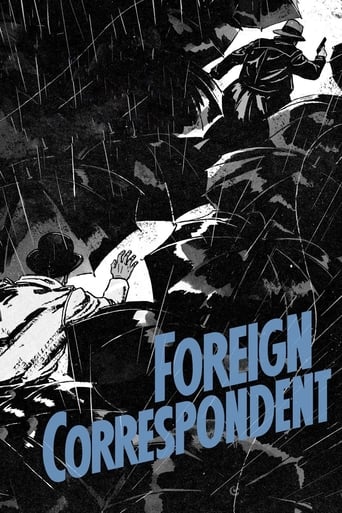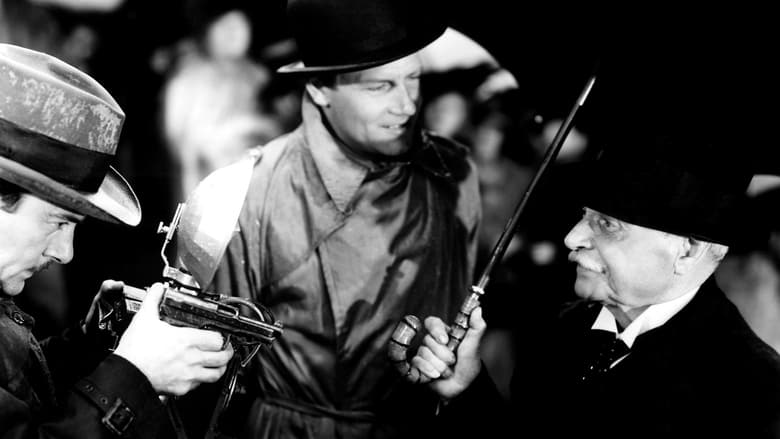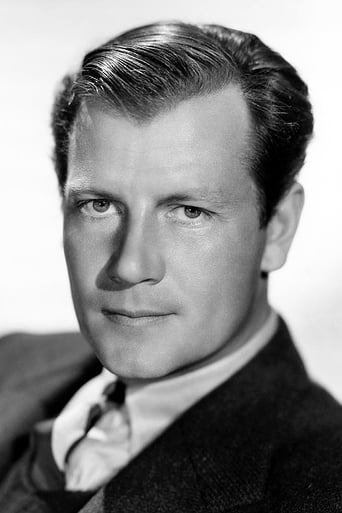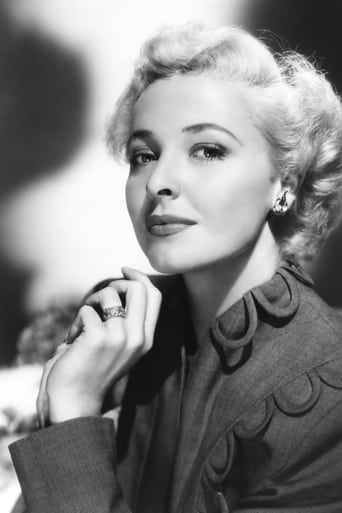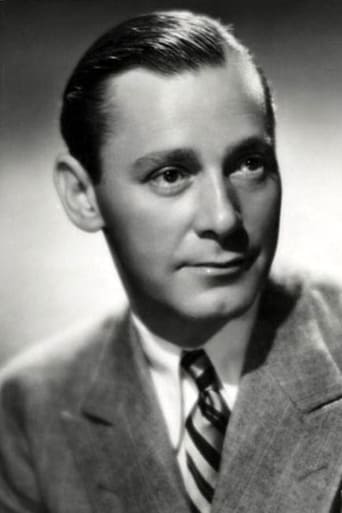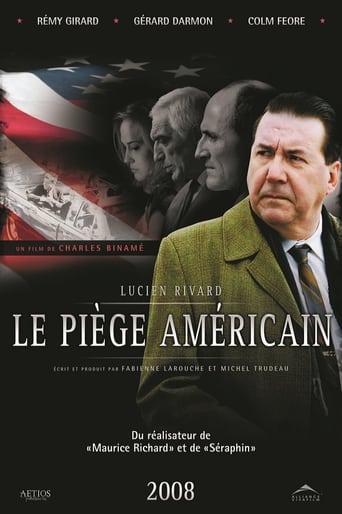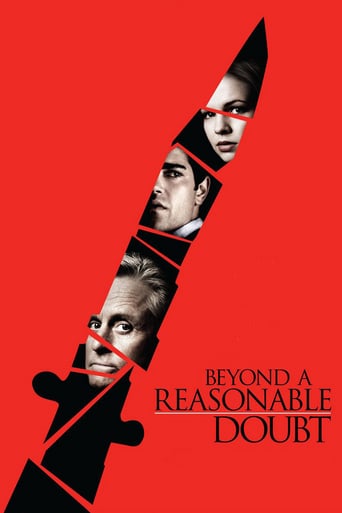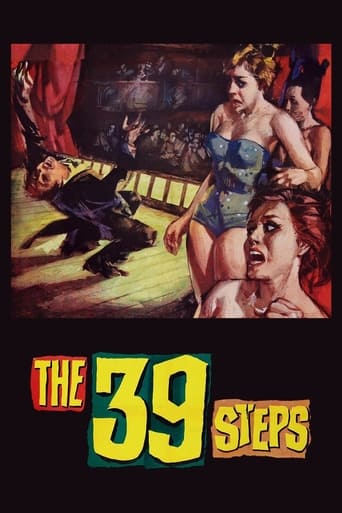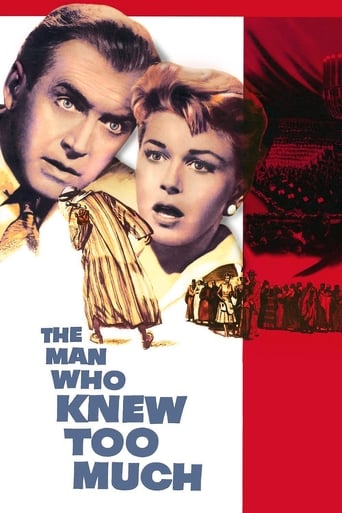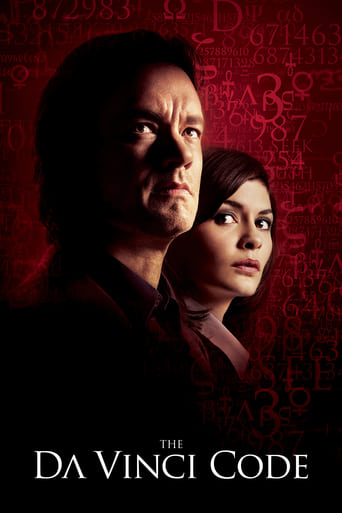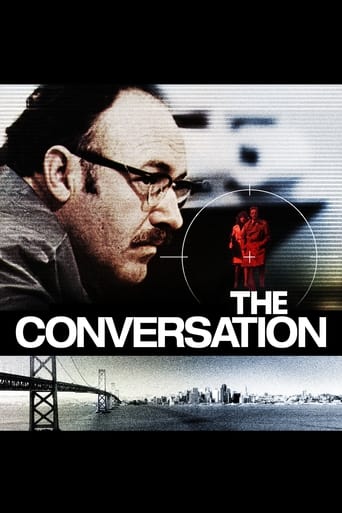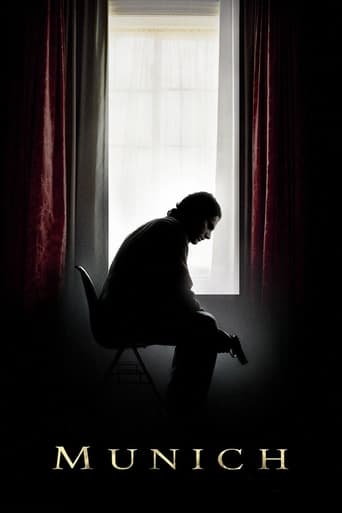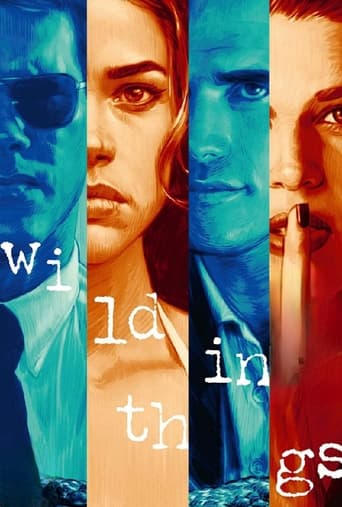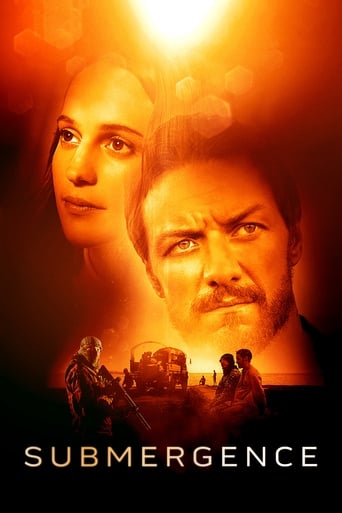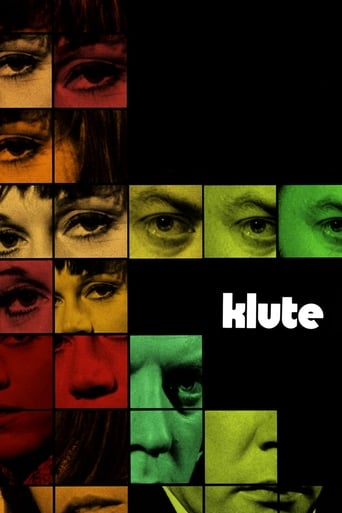Foreign Correspondent (1940)
American crime reporter John Jones is reassigned to Europe as a foreign correspondent to cover the imminent war. When he walks into the middle of an assassination and stumbles on a spy ring, he seeks help from a beautiful politician’s daughter and an urbane English journalist to uncover the truth.
Watch Trailer
Cast


Similar titles
Reviews
Sick Product of a Sick System
A lot more amusing than I thought it would be.
When a movie has you begging for it to end not even half way through it's pure crap. We've all seen this movie and this characters millions of times, nothing new in it. Don't waste your time.
The acting in this movie is really good.
Right from the start I knew I loved this movie. It's truly a Hitchcock classic, miles ahead of the last fluffy outing I saw from the director – STAGE FRIGHT – and a film with all the elements: mystery, suspense, romance, thrills, chills, and more besides. The globetrotting story sees our innocuous hero – Joel McCrea, playing one of Hitchcock's most appealing leading men – travelling to Holland and becoming involved with spies and conspirators. This is a film where nobody is who they seem to be and the action is thoroughly engaging. In some ways it reminds me of an early predecessor to the Bourne films: our hero's always on the move, outwitting sinister agents at every angle and narrowly avoiding death along the way too.The film is punctuated with vivid set-pieces. The early assassination sequence is shocking and gruesome, and it leads into a thrilling car chase. Then there's an extraordinarily suspenseful sequence inside a creaking windmill where our hero tries not to get caught – brilliant stuff indeed that defines the very word 'suspense'. Then there's the escape from the hotel room, the wonderful interlude in which our hero is accompanied by a bodyguard who's secretly out to kill him (one of the funniest things I've ever seen and the perfect mixture of laughs and thrills), a grisly torture scene, and even a major plane crash thrown in at the climax. Of course, all these moments are directed to the hilt by Hitchcock and among his best work.The cast is assured and indeed there isn't a bum performance among them. Particularly noteworthy are Herbert Marshall in a difficult role and a cocky George Sanders as a fellow reporter. I have to say, though, that Edmund Gwenn is the scene-stealer here as the immensely likable assassin. He's only in the film ten minutes but those ten minutes help to make the movie. Brilliant stuff indeed.
"Foreign Correspondent" was Alfred Hitchcock's second Hollywood film. (The first was "Rebecca"). The action opens in August 1939, the last days of peace before the outbreak of war. Johnny Jones is reporter with the New York Globe who is sent to Europe to report on the looming crisis, despite the fact that he has little knowledge of, or interest in, foreign affairs. His editor has been impressed by his success in exposing crime in the city and believes that he will display a similar tenacity and courage in uncovering the truth behind the European crisis. Once in Britain, Jones becomes involved with a conspiracy by enemy spies to assassinate- or possibly to kidnap- a Dutch statesman. He also finds time to conduct a romance with the daughter of a prominent British politician. (In Europe Jones goes by the alias "Huntley Haverstock"; to avoid confusion I shall refer to him as "Jones" throughout).Filming in neutral America in 1940, Hitchcock faced a similar problem to which that had confronted him while making his British spy thriller "The Lady Vanishes" in 1938, before war broke out- the unwillingness of the film companies to upset the Nazis. Everyone knew that "The Lady Vanishes" had really been set in Germany, but he had been forced to disguise the setting as an unnamed European dictatorship. Similarly, everyone knew that the villains in "Foreign Correspondent" were supposed to be Germans, but even at the end of the film, when war has broken out and bombs are falling on London, the words "German", "Germany" and "Nazi" are never used.Hitchcock has fun at the expense of American neutralists in the scene where an American sea-captain refuses to allow an American journalist to send a report to an American newspaper from on board his ship, on the grounds that to do so would be a breach of neutrality. The figure of Stephen Fisher, the leader of the "Universal Peace Party" who turns out to be a treacherous enemy agent, may have been a pointed reminder that by 1940 ostensibly pacifist or neutralist organisations on both sides of the Atlantic, such as Hastings Russell's British People's Party or the America First Committee, counted many overt or covert Fascist sympathisers among their members.The film was nominated for the "Best Picture" Oscar, but lost to "Rebecca", Hitchcock's only film to win "Best Picture". It also received five other unsuccessful Academy Award nominations. Today, however, it is difficult to see why it was so highly thought of at the time. Certainly, it contains several effective suspense sequences, notably the scene where Joel McCrea and Laraine Day are hiding in a Dutch windmill from the villains, McCrea's escape across the rooftops of the hotel and the shooting down of the airliner by an enemy destroyer. The final scene, in which McCrea makes an impassioned broadcast to the sound of enemy bombs falling on London, makes a great emotional impact. Hitchcock also displays his fondness for setting key scenes in an iconic building, in this case Westminster Cathedral, although the effectiveness of this scene is undermined by Edmund Gwenn's tendency to play his character for laughs, making it difficult for us to accept him as a dangerous assassin. (The use of the Catholic Westminster Cathedral, rather than its better-known Anglican counterpart St Paul's, is presumably explained by the fact that Hitchcock was himself a Catholic).The film also, however, has a number of weaknesses, not least a confusing plot; the villains' scheme seems particularly baroque and over-complicated. This is perhaps not surprising as the script was written by a committee. Four writers- Robert Benchley, Charles Bennett, Joan Harrison and James Hilton were officially credited but several others appear to have worked on it. Day makes a forgettable heroine- and McCrea, his final scene apart, an equally forgettable hero. (Hitchcock wanted Gary Cooper and Joan Fontaine but Cooper was not interested and Fontaine, the heroine of "Rebecca", was not available). For lengthy periods, in fact, McCrea seems to be replaced as the hero by the much more charismatic George Sanders as Jones's English colleague Scott ffolliott, ostensibly a minor character. (Spelling a surname with two initial lower-case "f"s is a genuine, if unusual, practice among certain British families; other examples include "ffrench" and "ffeatherstonehaugh"). One person who seems to have been impressed with "Foreign Correspondent" was Joseph Goebbels, who called it "A masterpiece of propaganda, a first-class production which no doubt will make a certain impression upon the broad masses of the people in enemy countries". Goebbels was speaking, however, as a professional propagandist, not as a film critic. Seen as a piece of propaganda from the viewpoint of 1940, the film doubtless achieved its aim of raising morale in Britain and of making at least some Americans question the wisdom and morality of remaining neutral while Hitler's armies overran Europe. Seen as a piece of film- making from the viewpoint of 2015, it is not really one of Hitchcock's best. 6/10
Ignorant American reporter Joel McCrea (John Jones) is given the pseudonym Huntley Haverstock and sent on a mission to Amsterdam to get a story about politician Albert Bassermann (Van Meer) and obtain some news about the impending war in Europe. Well, he certainly gets involved. Can he live to tell what he knows? The film is a little too long, and the first half an hour is pretty boring. We then get some tense scenes, starting with a shooting. At last, some suspense. Unfortunately, the realism of the film is sloppy at this point. For example the victim's killer would have been caught about 20 times over. Also, the killer's getaway car would not just have disappeared like that on a large empty road, given that the pursuers had the car in sight. Another instance of stupidity occurs at this point in that the bad guys don't seem to be looking out for the car that has been chasing them. These villains are cretinously stupid not to have someone pick up that McCrea is snooping around the windmill. He stands out like a sore thumb.Another memorable section sees hit-man Edmund Gwenn (Rowley) bide his time and attempt his murderous instructions on McCrea. He has a couple of goes. And while these are suspenseful, Gwenn plays for comedy so it's never quite effective. And that's a problem with this film, there is far too much light-heartedness (eg, the Latvian bloke) which takes away any real danger.George Sanders (ffolliott) turns up after the first boring half an hour that wasn't necessary and immediately becomes the best of the cast. In fact, the lead man McCrea completely disappears from the proceedings after about two thirds of the film and we follow Sanders as he unravels and solves the whole mystery. By himself. McCrea wasn't needed – Sanders even already knew about wealthy aristocratic Herbert Marshall (Fisher).The film does have two other memorable sequences. The first is the sea of umbrellas as the assassin makes his getaway – very creative. The other is what elevates this film to the score I have given it – namely, the whole plane crash episode. I found this particularly eerie given the current explanation of what happened to that Air Malaysia plane recently. The one that just disappeared. There is real footage of the view that the pilots would have had as the plane dives towards the sea. We then get the water pouring in and a frightening aftermath. Maybe the passengers were already dead come the impact in the real life situation. Still, it made me think and go all sombre about it.Unfortunately, this film lacks something. Oh yeah, Hitchcock is easy to spot in this one, so keep an eye out near the beginning.
It wasn't until very recently when I watched Foreign Correspondent for the first time, only two days in fact. And even now I am kicking myself for not having seen it before. Foreign Correspondent is a real gem, and as of now in my top 10 Hitchcock films, it is also one of his most overlooked. It is a splendidly made and directed film, the plane crash was superbly shot and one of my favourite Hitchcock set pieces in this regard. The music is both jaunty and haunting, and the script is one of the wittiest and most playful of any of Hitchcock's films in my view. The story has never a dull moment and is always clever, suspenseful and compelling, I didn't see anything that leapt out as dated or propaganda at all. There are some terrifically tense set pieces too, especially the ones with the Dutch windmill, Westminster Cathedral and the plane crash, and the romance between McCrea and Day is a little too abruptly introduced but is still very sweet and touching. I also loved the cast, Joel McCrea is effectively smooth, compared to other Hitchcock heroes he is rather lightweight but this is in comparison we're talking about(and he isn't even distractingly so). Larraine Day could have had more to work with but is instantly appealing in her roles and works very well with McCrea. The supporting cast fare even better though, especially George Sanders who is deliciously suave and dour(and in a way that few actors have equalled him in), Edmund Gwenn who is both menacingly untrustworthy and offbeat and Albert Basserman who is quite touching in his role. Herbert Marshall also acquits himself beautifully as does Robert Benchley. All in all, one of my personal favourites as of now from the Master of Suspense and also one that deserves more attention. Out of the Hitchcock films that I've seen for the first time as well Foreign Correspondent has also been the best one. 10/10 Bethany Cox

